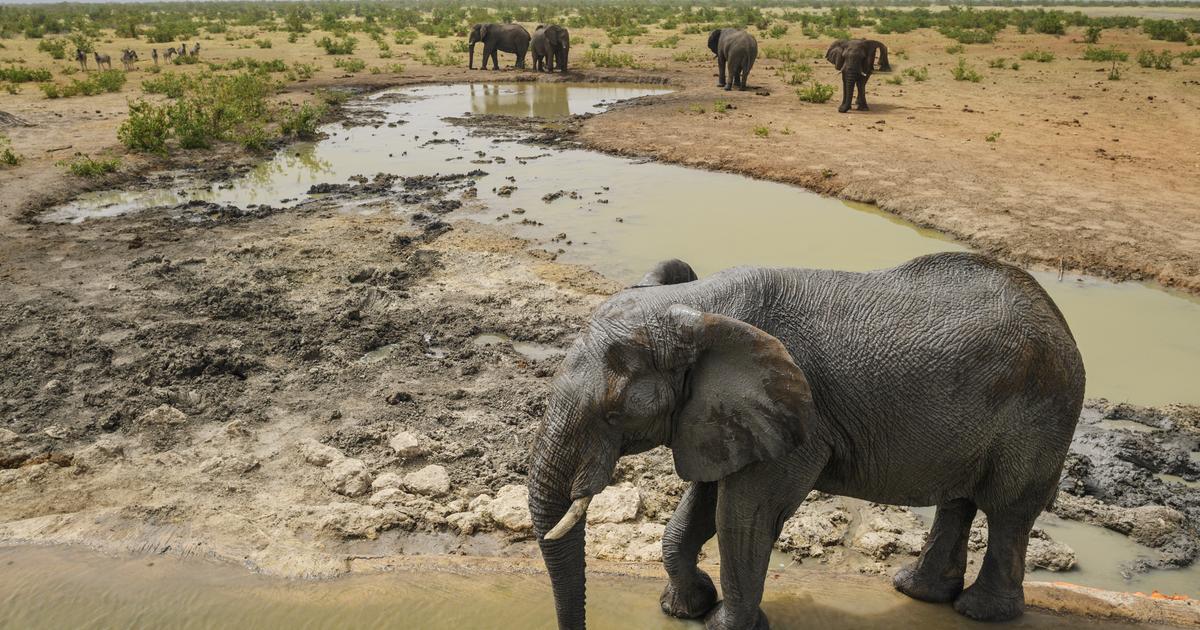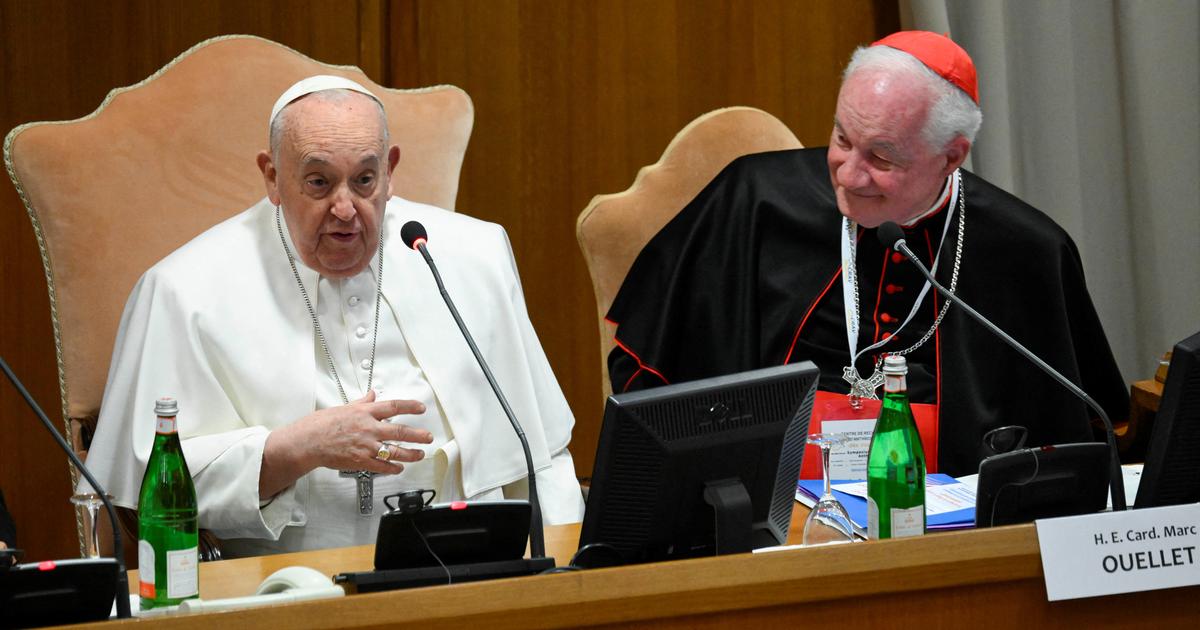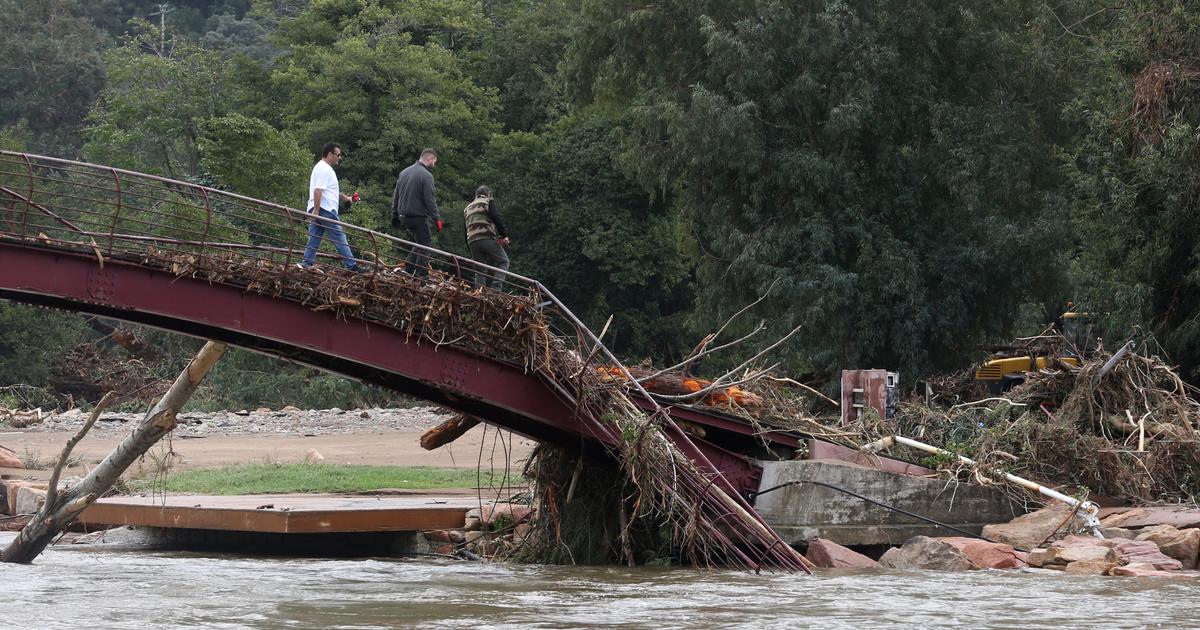Focus on climate crisis
All articles | More information
Reporting on climate change is one of the major journalistic challenges of our time. The climate crisis is also one of the most important issues of humanity for SPIEGEL. For this reason, we support an international initiative that seeks to take a look this week: "Covering Climate Now" has been initiated by the Columbia Journalism Review and the Canadian newspaper "The Nation", with more than 200 media companies worldwide including the Guardian, El País, La Repubblica, The Times of India, Bloomberg or Vanity Fair. SPIEGEL is dedicating the cover story of the current issue to the climate crisis this week and every day pays special attention to mirror.de
Emmanuel Hantobolo stands in the bare field behind his farm and looks resignedly at the cornstalks lying on the hard, dust-dry ground. "The last harvest was a disaster," says the peasant farmer. "The corn is usually two and a half feet high, but this time the tallest plants were only up to my waist, most of them were withered."
Hantobolo has only harvested a wheelbarrow full. "One wheelbarrow, ridiculous!" he says. The few kilos are not enough to feed his large family.
The wiry 52-year-old man farms eight hectares, which he inherited from his father in 1984. At first it went quite well, he has four cows, two bulls, a small herd of goats and chickens; he grows corn, soybeans, peanuts and vegetables. But then came this damn year 1995, in which hardly any rain fell, he recalls.
"The most dreadful drought people can remember"
It should have been much worse at the end of last season. Hantobolo sowed last November, but over the year only a few drops fell from the sky, all plants died. "We are experiencing the most dreadful drought people can remember."
Emmanuel Hantobolo lives in Kanchomba, a poor, underdeveloped scattered settlement in southern Zambia. Exact meteorological data on the region can be obtained from the field office of the Ministry of Agriculture in the provincial capital of Choma, eighty kilometers away. "On an annual average, we measure 800 to 1000 millimeters of rain, this season, from November to April, it was 327 millimeters," calculates Zandonda Tembo, 38, before.
The official wears a black velvet collita blazer and is responsible for the regional marketing of agricultural products, but there is not much to market. "Ten years ago, we produced around 60,000 tonnes of corn, and in 2019 it will be a measly 5,000 tonnes."
More at SPIEGEL +
That rain falls steadily for six, seven years, Tembo leads back to climate change. He believes that the recent weather phenomena were caused by Cyclone Idai, the foothills of the cyclone would have simply blown off the wetlands over Zambia.
With the support of international aid organizations, the ministry is trying to adapt subsistence farmers to the changed situation and strengthen their resilience. They learn organic farming, sustainable soil cultivation and fertilization, the marketing of their products through e-commerce. They are advised on the construction of additional dams and can even take out insurance against crop failures. "But the adaptation is too slow and we lack the necessary resources," says Tembo.
The whole country is crying for water
The temperatures in the savannah are now bearable in the south of winter. The problem is the widespread dryness. The bush looks really bleached, the dry leaves rustle like parchment, no green far and wide. Most streams and rivers have dried up, and the level of the huge Kariba Reservoir on the border with neighboring Zimbabwe has dropped by three meters. The whole country is crying for water.
Throughout southern Africa, the situation is now critical, as the subcontinent is in a largely arid or semi-arid zone, which is particularly vulnerable. Malawi, Zambia, Namibia, Zimbabwe, Botswana and South Africa are increasingly feeling the effects of climate change: greater heat, less precipitation, longer droughts.
Alliance Development Helps
The subcontinent is at the forefront of global climate change, according to a study by the South African Department of the Environment.
- In the interior of South Africa, the temperature is already two degrees Celsius higher than a hundred years ago,
- In neighboring Botswana, the difference is even three degrees - where the highest increase in the southern hemisphere is measured.
On the pastures in the south of Zambia are only straw-like grasses, the cattle are emaciated because they find hardly any food. That is why many ranchers move their flocks to the few areas that are not so affected by the drought. The uncontrolled migration spreads cattle diseases.
The world's highest deforestation rate per capita
Most small farmers in Kanchomba have never heard of climate change, says Emmanuel Hantobolo. For him, too, this is just an abstract concept, he believes that the crisis has mainly homemade causes: the increasing felling of trees to win firewood and the slash-and-burn to open up new economic areas. This accelerates erosion. If the already nutrient-poor soils are leached and give nothing more, the production of charcoal is an alternative source of income. Zambia has the world's highest per capita deforestation rate - a depletion that exacerbates the effects of climate change.
Hantobolo stands in front of his granary, a basket-like container on stilts, above it a pointed conical thatched roof. The store is empty, the plight forced his extended family to use up even the seed. He has ten children, a dozen tin plates drying on a wooden rack, from which they eat Nshima every day, maize porridge, the staple food in Zambia. Hantobolo has sold a few goats, but that did not help much, as all farmers are selling their livestock and prices have plummeted. At the same time, corn crops are becoming more and more expensive due to crop failures: a sack weighing 25 kilograms has risen from 45 to 115 kwacha, from the equivalent of three to eight euros.
The drought, which has been going on for four years, is driving peasants deeper and deeper into poverty, and if it rains again too little in the coming season, famine threatens. "Then people will die," says Emmanuel Hantobolo, "and there is nothing we can do about it, we can only hope that God will help us."
Global society
all articles
This article is part of the project Global Society, for which our reporters report from four continents. The project is long-term and supported by the Bill & Melinda Gates Foundation.
What is the project Global Society?
Under the title Global Society, reporters from Asia, Africa, Latin America and Europe will be reporting on injustices in a globalized world, socio-political challenges and sustainable development. The reportages, analyzes, photo galleries, videos and podcasts appear in the Politics Department of SPIEGEL. The project is long-term and will be supported over three years by the Bill & Melinda Gates Foundation (BMGF).
Are the journalistic contents independent of the foundation?
Yes. The editorial content is created without the influence of the Gates Foundation.
Do other media have similar projects?
Yes. Major European media such as "The Guardian" and "El País" have created similar sections on their news pages with "Global Development" or "Planeta Futuro" with the support of the Gates Foundation.
Was there already similar projects at SPIEGEL ONLINE?
SPIEGEL ONLINE has already implemented two projects in recent years with the European Journalism Center (EJC) and the support of the Bill & Melinda Gates Foundation: The "Expedition The Day After tomorrow" on Global Sustainability Goals and the journalistic refugee project "The New Arrivals" Several award-winning multimedia reports on the topics of migration and escape have emerged.
Where can I find all the publications on the Global Society?
The pieces can be found at SPIEGEL ONLINE on the topic page Global Society.















